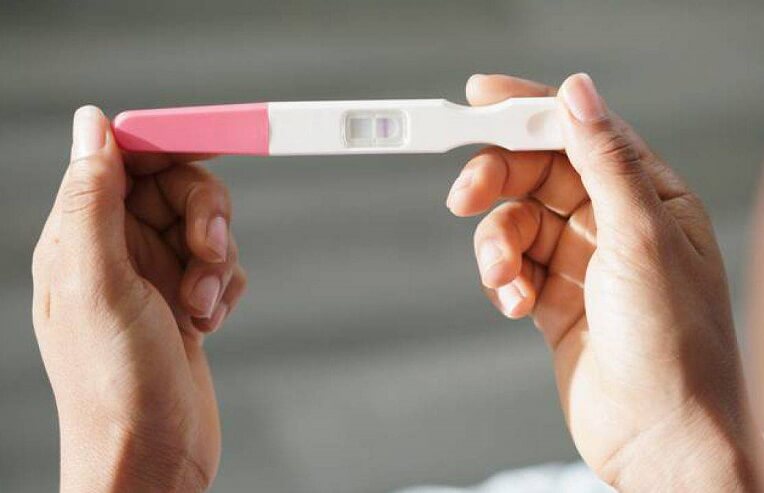If you’ve been trying to conceive for the last couple of years without success, chances are you’re not alone. Some of your close friends may be sharing the same concerns.
Your gynecologist may have even told you that it’s happening all over the world.
So, why are there declining fertility rates Boston? And what can you do to protect yourself?
In this article, I’ll answer these questions and discuss my top recommendations for optimizing your fertility.

Are Fertility Rates Really Declining?
According to recent data, there were 3.7 million births in the United States in 2019. This might seem like a decent number – until you consider the fact that the number of births has been declining steadily for years.1
In fact, the average number of children ever born to a woman aged 40 to 44 declined from three children to two between 1976 and 2018.2
And when you compare this to statistics from the 1950s – when the average woman had five children – it’s clear why some experts are concerned.3
In the United States, an average of 2.1 births per woman of childbearing age is required to maintain the current population in the absence of migration. This measure is known as a population’s replacement fertility rate. A number above 2.1 indicates a growing population, and anything below 2.1 is associated with a population decline.
With a replacement fertility rate of approximately 1.7, the United States is below the “replacement level,” meaning fewer young people will be available to support the aging population.4 And some experts fear that if the trend continues, economic challenges will arise.
But declining fertility rates Boston aren’t exclusive to the United States. In 2022, Japan recorded a record low – just below 800,000 births – for the first time since 1899.5 Even prior to 2022, Japan’s birth rates had been declining for 6 consecutive years.
In 2021, South Korea recorded the world’s lowest fertility rate, shattering its own record of 0.84 set in 2020. Their total fertility rate, which represents the average number of children born to a woman over her lifetime, was only 0.81. This is the lowest ever recorded in a highly developed democratic nation.6
Causes of Declining Fertility Rates
So, why are fertility rates declining around the world?
The truth is, fertility rates don’t tell the whole story. Many times, they don’t consider delayed childbearing, which refers to having one’s first child at age 35 or older.7 As more women around the world pursue higher education and their own careers, many are choosing to put off having children until later.
There are also financial considerations. Parenthood can come with a 25% decrease in income and hinder a woman’s career trajectory.8,9
But even with those factors considered, there are gaps in the story. Here are additional known reasons that are contributing to declining fertility rates Boston.
Environmental Toxins
Environmental toxins appear to be playing a role in declining fertility rates Boston. They have the potential to damage your eggs and, if you’re pregnant, your developing fetus. Examples of environmental toxins include endocrine-disrupting chemicals (EDCs), heavy metals, cigarette smoking, air pollution, and pesticides.
In a study of women undergoing infertility treatment, reducing dietary intake of high-pesticide residue fruits and vegetables was correlated with improved outcomes. Strawberries, spinach, potatoes, grapes or raisins, apples, and peppers were among the foods considered to have the highest pesticide residue concentrations. Women who consumed more of these foods were 18% less likely to get pregnant and 26% less likely to have a live birth compared to women who consumed less.10
Exposure to heavy metals can come from your diet, cosmetics, supplements, and even your home through lead paints and pipes. People with a lead level above 15.47 ppb have a two-fold higher infertility risk compared to individuals whose levels are below that threshold.11 Mercury is also linked to female infertility and neurodevelopmental disorders in children.12,13
Xenoestrogens are substances that are functionally or structurally similar to estrogens. This can be confusing to your body, which means xenoestrogens can skew your hormonal balance. They are known to exert estrogen-like effects, such as contributing to declining fertility rates Boston and increased cancer risk. You can read more about them in How Xenoestrogens Affect Your Hormones and How You Can Fight Back.
Chronic Stress
If you’ve been feeling more stressed out than ever, you’re not alone. Especially after the last 3 years.
According to Gallup’s 2021 Global Emotions Report, four in 10 adults worldwide reported feeling a lot of worry or stress. Twenty-eight percent of responders said they experienced sadness. These experiences of stress, worry, and sadness – already at or near record highs in 2020 – set new records.14
The 2022 “Stress in America” report by the American Psychological Association showed 27% of Americans are “so stressed they can’t function.”15
The relationship between stress and infertility has been debated for years. What’s clear is that women with infertility tend to experience more stress and anxiety.
But is it also true the other way around?
The answer is less definitive on this one. It’s mainly because defining stress is difficult. Is a stressful work day the same as the chronic stress from finances or a difficult relationship? Probably not.
One analysis conducted in 2015 examined 39 studies published between 1978 and 2014. These studies included a total of 2,746 men and women seeking fertility treatment. The authors of the analysis found that the participants who engaged in psychosocial treatments like behavioral therapy were more likely to get pregnant than those who didn’t.16
While stress is unlikely to be the sole cause of a woman’s infertility, it can contribute to other factors that affect fertility. For example, chronic stress can impact:17
- Sleep quality
- Eating habits
- Activity level
- Sex drive
- Alcohol intake
- Smoking and/or other recreational drug use
- Weight
It’s clear that stress can contribute, directly or indirectly, to your ability to conceive. Let’s explore each of these factors.
Sleep Quality
We live in a sleep-deprived society. According to data collected by the CDC, approximately 35% of adults get less than 7 hours of sleep per night.18
And it’s easy to see why Americans are sleeping less. Our schedules are jam-packed with work, commuting, studying, cooking, caring for our loved ones, and so much more. Not to mention the hours of sleep you might lose tossing and turning over things that stress you out.
Poor sleep quality is commonly associated with health problems like obesity, depression, heart disease, asthma, and high blood pressure.
But did you know it can affect your reproductive health, too?
Studies show the rising rates of infertility over the last several decades parallel that in sleep deprivation.19 Furthermore, more than one-third of women struggling with infertility also experience sleep disturbances.20
Working the night shift could also affect your reproductive health. Disturbances in the circadian rhythm have been shown to lead to infertility and abnormal menstrual cycles. This may be due to the fact that secretions of sex hormones are synchronized with your circadian rhythm.21
Excess Weight
Americans are overfed yet undernourished.
Over the years, researchers have amassed a large amount of evidence indicating the impact of excess weight on a woman’s fertility. Even being slightly overweight can lower your fertility rate.22 The same goes for your partner. Obesity is correlated with lower sperm quality and increased sperm DNA damage.23
Why does being overweight affect fertility?
One of the main reasons involves ovulation. Accumulation of fat can lead to irregular menstrual cycles or even stopped menstrual cycles in some. This makes timing ovulation much more challenging. In women whose ovulation simply stops, a pregnancy simply can’t occur.
Other health conditions secondary to obesity, like diabetes and insulin resistance, can also influence the declining fertility rates Boston.24
Poor Diet
Poor nutrition is a leading cause of fertility problems in women, adding to the declining fertility rates Boston.
According to an ongoing study following more than 116,000 female nurses since 1989, a higher risk of infertility was associated with the following foods:25
- Trans fats
- Low-fat dairy foods
- Soft drinks
- Higher dietary glycemic load
This shows that diets high in sugar and processed foods, and low in fiber, are detrimental to a woman’s fertility.
On the other hand, subjects who consumed more of the following had a significantly lower risk of infertility:26
- Folate
- Nonheme iron (found in plant-based foods like whole grains, nuts, leafy greens)
- High-fat dairy
- Vegetable protein
Researchers from Harvard Medical School also reported similar findings. In addition to folate supplementation, they found that vitamin B12, omega-3 fatty acids, and a healthy Mediterranean diet had positive effects on fertility.27
Other studies also indicate that vitamin A, calcium, iron, zinc, magnesium, iodine, and selenium are essential for women trying to conceive.28
In general, research indicates that an anti-inflammatory, whole foods, and nutrient-rich diet is critical in fertility.29
How to Optimize Your Fertility
Limit Exposure to Environmental Toxins
Trying to limit your exposure to environmental toxins is a heavy task, but here are my top recommendations:
- Choose organic and/or biodegradable skincare products
- Eat organic foods as much as possible
- Opt for safer feminine hygiene products like menstrual cups
- Increase fiber in your diet
- Avoid dry-cleaning clothes
- Use baits and traps instead of pesticides
- Keep your body moving
- Choose plastic alternatives where possible
- Ditch air fresheners and fragrances
If you’re concerned about heavy metal exposure, please work with your healthcare provider to get appropriate testing and to detox your body. It’s critical that you address these issues before you try to conceive.
Quit Smoking
Quitting smoking is one of the best ways to boost fertility. Chemicals in cigarette smoke, such as carbon monoxide, speed up the loss rate of eggs. Even fertility treatments are less successful in women who smoke.30
And, if you’re successful at conceiving, smoking increases your risk of miscarriage.31
Quitting smoking won’t replace the eggs you’ve already lost. But it can increase the likelihood of you becoming pregnant. According to the Cleveland Clinic, it takes about 3 months to see positive benefits in eggs.32
Control Your Alcohol Consumption
You might already know that drinking alcohol during pregnancy can endanger the fetus.
But what about before you’re pregnant?
To increase your chances of a successful conception, you might want to cut back on your alcohol consumption.
A 2021 study reported on the effects of alcohol intake on fecundability, the probability of achieving a pregnancy in a menstrual cycle. Results showed that moderate (3 to 6 drinks a week) and heavy (more than 6 a week) intake of alcohol during the post-ovulation phase of a woman’s menstrual cycle can disrupt conception.33
Not drinking at all while trying to conceive is a great way for both you and your partner to optimize your chances of becoming pregnant.
Prioritize High-Quality Sleep
As with most things, balance is important. You don’t want to get too little, but there’s also such a thing as too much sleep. And research shows too much sleep is just as detrimental to your health as too little sleep.34 You need to find that sweet spot where it’s just the right amount of sleep.
So, how much sleep do you need?
Sleep needs vary from person to person. In general, experts agree that most adults should sleep for 7 to 9 hours a night.35
Here are some tips that may help you get more sleep:
- Go to sleep by 10 PM: Of course, this depends on your work schedule. If possible, I recommend being in bed by 10 PM. One study from the UK showed that sleep onset time of 10:00 PM to 10:59 PM was associated with low cardiovascular disease incidence.36 If this doesn’t work for your schedule, you can try blackout curtains or sunrise alarms, which simulate sunrises.
- Keep a regular sleep pattern: Try to go to bed and get up at the same time every day. Yes, this includes weekends! Having a consistent daily routine will help reinforce your body’s sleep-wake cycle.
- Optimize your sleep environment: A relaxing environment is essential for a good night’s sleep. The CDC suggests a dark, quiet, cool, and comfortable room is best.37 Regardless of whether you prefer sleeping under a thick comforter or on top of it, experts suggest a range of 60 to 71.6 degrees Fahrenheit for your bedroom.38
- Limit daytime naps: A good nap can do a lot of good for your stress and alertness levels. But naps have a dark side. Research shows taking long naps (more than 1 hour) could lower your life expectancy and increase your risk of developing serious health conditions like diabetes.39 If you want to take daytime naps, I recommend no longer than 30 minutes.
- Pay attention to caffeine: Some studies have found a link between large caffeine consumption and female fertility.40 If you’re also trying to improve your sleep quality while also trying to conceive, stop your caffeine intake at least 4 to 6 hours before bed.
- Relax your mind: If your mind is racing with worries and thoughts, you won’t be able to fall asleep. It’s also hard to relax your mind if you consume stimulating content like social media right before bedtime. Try to avoid electronics before bed as much as possible. If you find that you can’t fall asleep within 20 minutes of going to bed, try listening to relaxing music or reading a book.
You can find more tips in my blog 20 Tips for Sleep and Women’s Health.
Stay Active
Regular physical exercise can help lower your stress level and improve your overall health. The U.S. Department of Health and Human Services recommends at least 150 to 300 minutes of moderate-intensity exercise per week. If you’re interested in more intense aerobic workouts, the recommended amount is 75 to 150 minutes a week.41
It’s important to be aware of what your body is capable of. Pushing yourself too hard can result not only in injuries, but also negatively impact your fertility.42
Vigorous exercise could also hurt your chances of becoming pregnant if you’re using a form of assisted reproductive technology like in vitro fertilization (IVF). In a large study involving 2,232 women receiving IVF treatments, those who exercised 4 or more hours a week were 40% less likely to have a live birth. They were also 30% more likely to experience cycle cancelation and twice as likely to have an implantation failure.43
Still, that doesn’t mean you should avoid exercise altogether. Exercise is especially important if you’re overweight.
In general, I recommend sticking to moderate-intensity exercises, such as:44
- Strength training
- Swimming
- Bicycling
- Brisk walking
- Water aerobics
It’s also important to consider the phase of the menstrual cycle you’re in. You can read more about this at Cycle Syncing: How Biohacking Your Period Can Lead to a Better You.
Clean Up Your Diet
It likely doesn’t come as a surprise that a healthier diet means improved fertility.
But eating right is difficult for many of us, even when we’re not trying to conceive. Keto? Paleo? Vegan? Mediterranean? Which is the best for fertility?
I understand the temptation to follow a fad diet. But there is no best diet. What I recommend for my patients is mindful eating, a practice that involves paying close attention to your food, how you think and feel about food, and how each food choice makes your body feel. You can learn more about mindful eating here.
In general, I recommend:
- Avoiding rancid fats and industrial seed oils
- Omega-3 fatty acids
- An ample amount of proteins and good carbohydrates
- Folate or methyl-folate and Vitamin B12
- Choline
- Vitamin A (as retinol)
A healthy, balanced diet will also improve your gut health. Believe it or not, your gut health plays a central role in your fertility, which impacts declining fertility rates Boston. Research has shown that your gut microbiome interacts with estrogen, androgens, insulin, and other hormones. As a result, an imbalance gut microbiome can lead to pregnancy complications, polycystic ovarian syndrome, endometriosis, and even cancer.45
Manage Your Stress Levels
This is perhaps the most important tip of all. As I mentioned before, high stress levels push many of us towards bad habits like smoking.
Here are some popular stress management techniques I recommend:
- Keep a journal – and let it all out
- Spend time in nature
- Alot time for prayer/meditation
- Book time for yourself “me” time
- Have sex for fun
- Find a support group or counselor
- Get a massage
- Take a break from social media
- Invest time in your interest/hobbies
Be sure to check out my Ten Healthy Stress Hacks for more ideas.
Address Your Fertility Concerns With a Women’s Hormone Specialist in Boston
I can’t emphasize enough how important it is to address your health concerns before trying to conceive.
But I understand that so much information at once can be overwhelming. Right now, you might be asking yourself, “Where do I start? What should be my highest priority?”
You’re not alone.
If you would like help optimizing your fertility, schedule a free 15-minute consultation with me today to start your journey towards a healthier, happier you.
I consult with women nationwide, so whether you’re in the Boston area, on the opposite coast, or somewhere in between, I’m ready to help whenever you’re ready.
Schedule a free 15-minute consultation today to learn more about how I can help you.
References:
- https://www.cdc.gov/nchs/data/nhsr/nhsr179.pdf
- https://www.cdc.gov/nchs/data/nhsr/nhsr179.pdf
- https://ourworldindata.org/global-fertility-has-halved
- https://budgetmodel.wharton.upenn.edu/issues/2022/7/8/measuring-fertility-in-the-united-states
- https://www.japantimes.co.jp/news/2022/12/20/national/social-issues/japan-depopulation-rate-record-low/
- https://www.koreatimes.co.kr/www/nation/2022/02/281_324402.html
- https://pubmed.ncbi.nlm.nih.gov/24813228/
- https://link.springer.com/chapter/10.1007/978-3-319-63295-7_10
- https://www.nytimes.com/2020/04/17/parenting/childcare-cost-budget.html
- https://bcmj.org/articles/optimizing-fertility-part-2-environmental-toxins
- https://www.ncbi.nlm.nih.gov/pmc/articles/PMC4673771/?report=reader
- https://pubmed.ncbi.nlm.nih.gov/9392777/
- https://pubmed.ncbi.nlm.nih.gov/30384229/
- https://news.gallup.com/poll/394025/world-unhappier-stressed-ever.aspx
- https://www.apa.org/news/press/releases/stress/2022/concerned-future-inflation
- https://www.ncbi.nlm.nih.gov/pmc/articles/PMC4316425/
- https://www.nichd.nih.gov/health/topics/infertility/conditioninfo/causes/lifestyle
- https://www.cdc.gov/sleep/data-and-statistics/adults.html
- https://www.ncbi.nlm.nih.gov/pmc/articles/PMC7101004/
- https://pubmed.ncbi.nlm.nih.gov/23829562/
- https://pubmed.ncbi.nlm.nih.gov/10344587/
- https://cms.galenos.com.tr/Uploads/Article_13433/111-7.pdf
- https://rep.bioscientifica.com/view/journals/rep/154/4/REP-17-0161.xml
- https://pubmed.ncbi.nlm.nih.gov/19863473/
- https://www.ncbi.nlm.nih.gov/pmc/articles/PMC4981818/
- https://www.ncbi.nlm.nih.gov/pmc/articles/PMC4981818/
- https://pubmed.ncbi.nlm.nih.gov/28844822/
- https://academic.oup.com/advances/article/12/6/2372/6303415
- https://www.mdpi.com/2072-6643/14/9/1918
- https://www.reproductivefacts.org/news-and-publications/patient-fact-sheets-and-booklets/documents/fact-sheets-and-info-booklets/smoking-and-infertility/
- https://www.ncbi.nlm.nih.gov/pmc/articles/PMC3969532/
- https://health.clevelandclinic.org/how-stopping-smoking-boosts-your-fertility-naturally/
- https://academic.oup.com/humrep/article/36/9/2538/6294415
- https://www.hopkinsmedicine.org/health/wellness-and-prevention/oversleeping-bad-for-your-health
- https://thesleepdoctor.com/how-sleep-works/how-much-sleep-do-you-need/
- https://academic.oup.com/ehjdh/article/2/4/658/6423198
- https://www.cdc.gov/niosh/emres/longhourstraining/environment.html
- https://www.sleepfoundation.org/bedroom-environment
- https://vitalrecord.tamhsc.edu/long-naps-cause-health-issues/
- https://www.yourfertility.org.au/everyone/drugs-chemicals/caffeine
- https://health.gov/sites/default/files/2019-09/Physical_Activity_Guidelines_2nd_edition.pdf
- https://link.springer.com/article/10.1007/s40279-016-0669-8
- https://pubmed.ncbi.nlm.nih.gov/17012457/
- https://www.nhlbi.nih.gov/health/educational/lose_wt/phy_act.htm
- https://www.ncbi.nlm.nih.gov/pmc/articles/PMC7971312/




